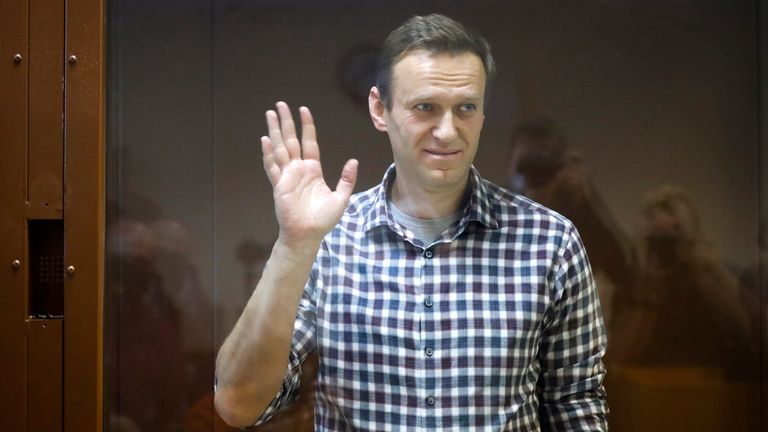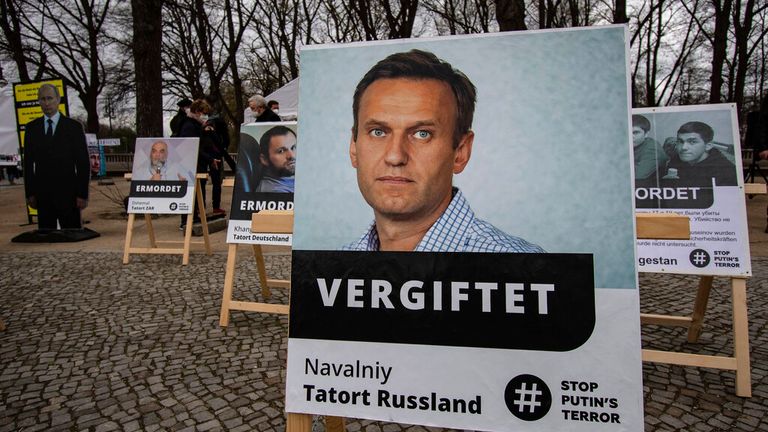Alexei Navalny’s doctor has said the Russian opposition leader is on the verge of death as he continues his hunger strike in prison.
Yaroslav Ashikhmin claims Mr Navalny‘s latest test results show extremely high potassium levels, which put him at risk of cardiac arrest.
The physician also says he has high creatinine levels, which suggest his kidneys are damaged.
“Our patient could die at any moment,” he wrote on Facebook.
Mr Navalny, Vladimir Putin‘s most vocal critic, went on hunger strike after he was refused access to medical care, despite experiencing severe back pain and loss of feeling in his legs.
Russia’s state penitentiary service claims the 44-year-old is getting all the care he needs.
But his allies say he has lost 15kg (33lbs) in the five months he has been held at penal colony number two in Pokrov, 60 miles from Moscow.
Prison staff have been threatening to force feed him, they claim.
Anastasia Vasilyeva, head of the Navalny-backed Alliance of Doctors union, demanded that “action must be taken immediately” to address his condition.
US President Joe Biden said of Mr Navalny’s deteriorating condition: “It’s totally, totally unfair and totally inappropriate. On the basis of having the poison and then on a hunger strike.”
Mr Navalny was detained in January as he returned to Russia from Germany, where he spent five months recovering from a nerve agent poisoning.
He has blamed the Kremlin for targeting him with novichok – the same poison used on the Skripals in Salisbury – an allegation that Russian authorities reject.
Mr Navalny was jailed in February for two years and eight months for parole violations he says were exaggerated for political purposes.













